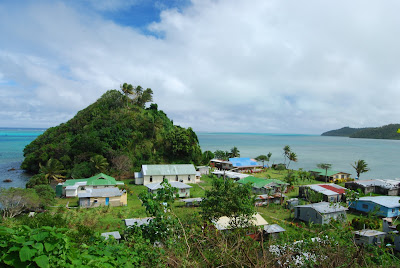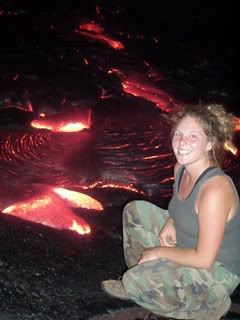This is something i wrote about a week ago but couldn't post until now: It's time for a short lesson on traditional Fijian village structure. Hopefully this will help you to better understand what it's like for me to live here since my village is more traditional than some. If this isn't interesting to you, I won't be offended if you don't read it.
The country of Fiji is divided into 12 provinces (Yasana). These could could be compared to states in the U.S. Each province is divided into districts (Tikina), which would be like our counties. Then there are any number of villages (koro) in each district. Each village has a chief. One village in each district is a chiefly village so that the chief of that particular village is also the chief of the district. Then each province has a chiefly village where the chief of that village is the chief of the his/her district and chief of the whole province. The position of chief is inherited and he/she has the last say in all decisions made in the village.
Also an inherited position is the mata ni vanua or the chief's spokesman. He's the connection between the chief and the people. He can speak directly to the chief, and during ceremonies he speaks for the chief and accepts offerings (sevusevu) made to him.
Another important person in the village is the Turaga ni koro. He is sometimes elected and sometimes chosen by the chief depending on the village. He's like the village mayor. While the chief is the traditional leader of the village, the Turaga ni koro is more like a political leader. He's the connection between the village and the government. He goes to district and provincial council meetings and all projects in the village must be approved by him.
Then there are the elders who advise the chief and the Turaga ni koro. They're the ones that do most of the talking at village meetings.
There could be anywhere from 50 to 1000 people living in a single village. They say the people of a village are all descendants of a common ancestor who was one of the original Melanesian colonizers of the islands maybe 3000 years ago. The people of each village are divided into clans called mataqali. You inherit your father's mataqali and when women marry, they join their husbands mataqali. What's interesting about Fiji is that the mataqali is the land-owning unit, not the individual. 83% of the land in Fiji is still owned by mataqali (compare that with how much land in the U.S. is still owned by Native Americans). This land can never be bought or sold but it can be leased. So most of the resorts and hotels in Fiji don't own the land they're on, they pay rent to the mataqali that owns the land. For many families this rent is a significant source of income.
I hope all of this is somewhat interesting. Now I can better explain my village. My village has about 130 people and 4 mataqali. I've been adopted by the chief's mataqali which is called Raralevu. My village is a chiefly village. So my chief is the chief of this village, this district, and this province. His title is Vunivalu which means war chief. The Turaga ni koro is my counterpart, so he's the person I'm supposed to be working closely with on any projects I do in the village.


















